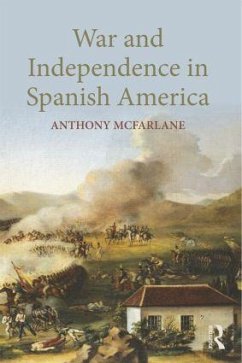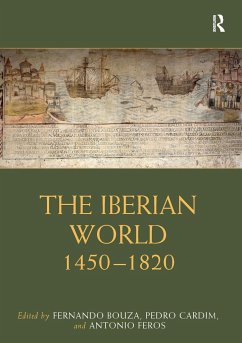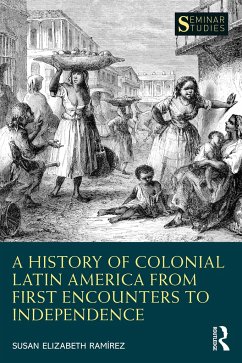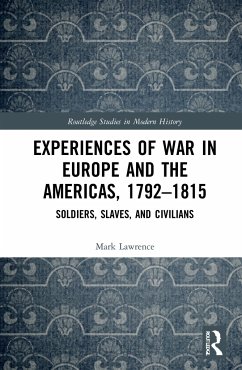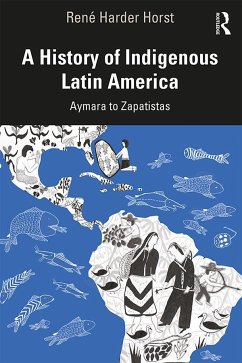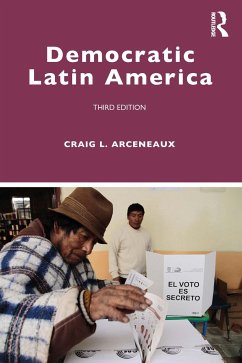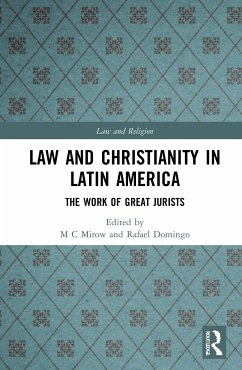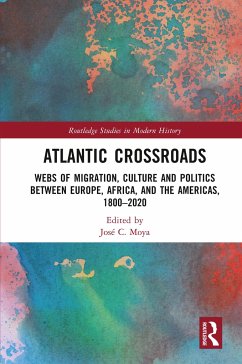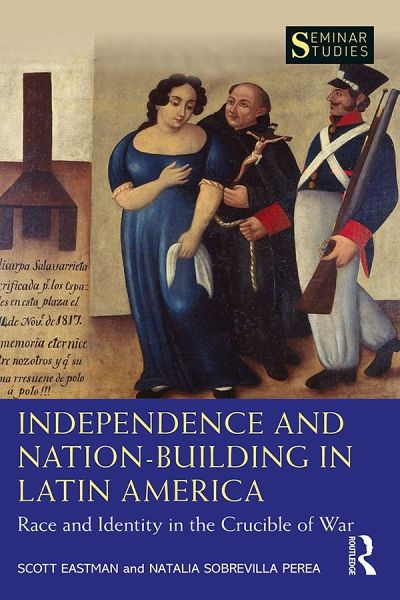
Independence and Nation-Building in Latin America
Race and Identity in the Crucible of War
Versandkostenfrei!
Versandfertig in 6-10 Tagen
41,99 €
inkl. MwSt.
Weitere Ausgaben:

PAYBACK Punkte
21 °P sammeln!
Independence and Nation-Building in Latin America: Race and Identity in the Crucible of War reconceptualizes the history of the break-up of colonial empires in Spanish and Portuguese America. In doing so, the authors critically examine competing interpretations and bring to light the most recent scholarship on social, cultural, and political aspects of the period.Did American rebels clearly push for independence, or did others truly advocate autonomy within weakened monarchical systems? Rather than glorify rebellions and "patriots," the authors begin by emphasizing patterns of popular loyalism...
Independence and Nation-Building in Latin America: Race and Identity in the Crucible of War reconceptualizes the history of the break-up of colonial empires in Spanish and Portuguese America. In doing so, the authors critically examine competing interpretations and bring to light the most recent scholarship on social, cultural, and political aspects of the period.
Did American rebels clearly push for independence, or did others truly advocate autonomy within weakened monarchical systems? Rather than glorify rebellions and "patriots," the authors begin by emphasizing patterns of popular loyalism in the midst of a fracturing Spanish state. In contrast, a slave-based economy and a relocated imperial court provided for relative stability in Portuguese Brazil. Chapters pay attention to the competing claims of a variety of social and political figures at the time across the variegated regions of Central and South America and the Caribbean. Furthermore, while elections and the rise of a new political culture are explored in some depth, questions are raised over whether or not a new liberal consensus had taken hold. Through translated primary sources and cogent analysis, the text provides an update to conventional accounts that focus on politics, the military, and an older paradigm of Creole-peninsular friction and division. Previously marginalized actors, from Indigenous peoples to free people of color, often take center-stage.
This concise and accessible text will appeal to scholars, students, and all those interested in Latin American History and Revolutionary History.
Did American rebels clearly push for independence, or did others truly advocate autonomy within weakened monarchical systems? Rather than glorify rebellions and "patriots," the authors begin by emphasizing patterns of popular loyalism in the midst of a fracturing Spanish state. In contrast, a slave-based economy and a relocated imperial court provided for relative stability in Portuguese Brazil. Chapters pay attention to the competing claims of a variety of social and political figures at the time across the variegated regions of Central and South America and the Caribbean. Furthermore, while elections and the rise of a new political culture are explored in some depth, questions are raised over whether or not a new liberal consensus had taken hold. Through translated primary sources and cogent analysis, the text provides an update to conventional accounts that focus on politics, the military, and an older paradigm of Creole-peninsular friction and division. Previously marginalized actors, from Indigenous peoples to free people of color, often take center-stage.
This concise and accessible text will appeal to scholars, students, and all those interested in Latin American History and Revolutionary History.





